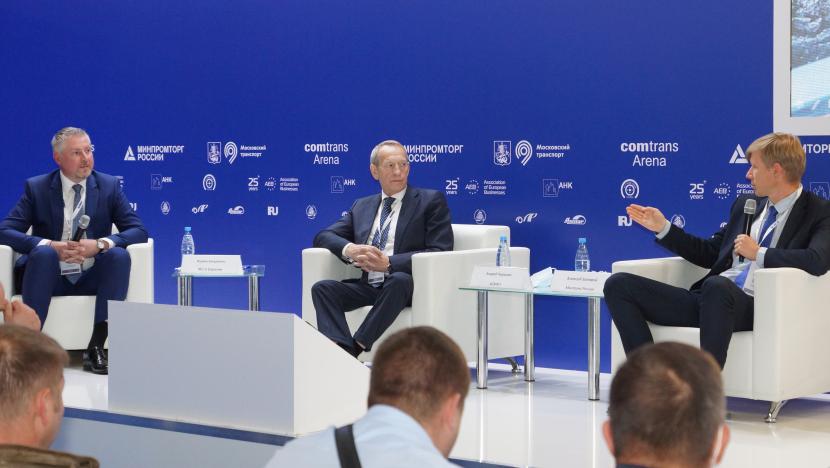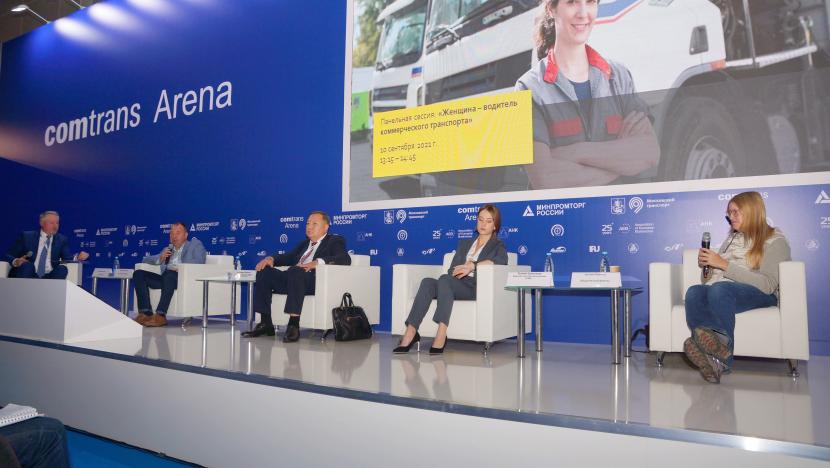IRU and its Russian member, ASMAP, have co-hosted a panel session on digitalising the road transport industry at the 16th International Commercial Vehicle Show “COMTRANS”, in Moscow last week. Speakers from both the public and private sectors discussed the transition to paperless and contactless transit and customs operations.
IRU also moderated another session at the event on empowering women in the road transport industry in the region.
Russia’s paperless plans
The representative of the Russian Ministry of Transport outlined recent legal developments regulating the use of consignment notes for national operations. The new law, entering into force on 1 January 2022, will give the same status for digital consignment notes in national operations as for paper notes.
In 2023, the use of digital consignment notes in national operations may become mandatory. In the coming years, the Russian transport ministry has ambitions to abandon most paper transport documents, replacing them with digital ones.
Digital advances across Eurasia
On the international level, Russia acceded to the e-CMR protocol in 2018, followed by Belarus in 2019. With both countries being member states of the Eurasian Economic Union, they are now in the final phase of preparations to test e-CMR for bilateral transports. Mutual recognition of digital documents and digital signatures will be performed through the “trusted third party” concept developed within the Eurasian Economic Union.
IRU updated the audience concerning the entry into force of Annex 11 to the TIR Convention and next steps regarding implementation, digital TIR corridors deployed in Central Asia, and e-CMR developments across the region.


